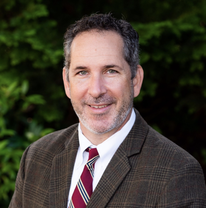Important work needed to be done, and if we didn’t do it we would just start the next year behind. That turned out not to be true. We had a celebration and everyone excitedly moved on into summer. Work got done: comments were written, grades were submitted, but it was done asynchronously. Some people even met, but they had the autonomy to do it when and where they wanted. Instead of meeting, what we did was celebrate – on the same day as graduation – and then rest, both of which were well deserved and much needed. No one missed these end of the year meetings. Shocker, I know! In fact, I’ll confess that only one year after abandoning these meetings, I just had to look up old schedules to remember what we had met about in the “COVID before-times.” Whether over or not, we seem to be moving on from the pandemic, and we are taking seriously the idea that in many ways we shouldn’t just return to “normal.” And one of the ways in which we are doing this at Miss Porter’s is by not going back to having end of the year meetings. While it hasn’t been quite as challenging a year as last, when we get to graduation, people will still be exhausted, and so the least we can give them is some autonomy with regard to how they use their time. Grading will get done, comments will get written, some departments and committees will meet, but they can schedule these meetings whenever they want over the summer, and the same will be true for one-on-one meetings that supervisors have with all faculty members. This takes some stress and pressure off of the end of the year, and that excitement we all feel at graduation can carry into the next week, without the dread of having to be in a meeting at 8am on Monday. On an episode of NAIS’s New View EDU podcast this past winter, Jay McTighe said the following: “I'm an advocate for summer work, whether it's summer curriculum work or designing for project-based learning, or more authentic assessments. Because what I call the heavy lifting of curriculum and assessment design is just too hard to do in the middle of the school year with occasional meetings here or a substitute day there. By the way, the implication should be straightforward, especially in schools that don't have a history of summer work. We need to build that capacity. We need to agree on what we need to work on. We need to invite the right people to come work on it. We need to set the dates well in advance so people can plan their summers accordingly, and we need to budget for it. We need to pay people for work outside of the teaching day.” We were inspired by this, so one thing we have added this year is what we are referring to as our first annual curriculum writing institute. In place of meetings, teachers have been given the opportunity to opt into this curriculum writing institute, and they will get paid for this additional work writing curriculum for programs and courses that reflect institutional priorities. So for some teachers there will be work, but it will be optional, it will be generative, and it will be paid. McTighe is correct – this curriculum work can’t get done during the school year, especially when you are trying to do a complete overhaul of your curriculum as we are at Miss Porter’s in preparation for our transition to a full mastery-based program and the eventual issuing of a Mastery Transcript.
Thus, we’ve reduced some of the stress of the end of the year, people are given autonomy, and choice, some are able to earn additional income, and real important work that moves the school forward gets done. So go ahead, follow our lead and cancel those end of the year meetings. I promise your faculty won’t mind!
0 Comments
Leave a Reply. |
Don't miss our weekly blog posts by joining our newsletter mailing list below:AuthorsBrad Rathgeber (he/him/his) Archives
July 2024
Categories |


 RSS Feed
RSS Feed